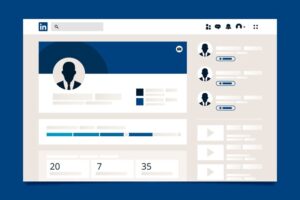Compound Interest Explained Simply: How It Works
Discover now how compound interest works and how it can help grow your savings with simple examples and tips.
See now how you can make your money work for you!
Ever wondered how some people manage to grow their savings so quickly? The secret is compound interest.
It’s a simple yet powerful concept that can turn even small amounts of money into something much bigger over time. Let’s see how it works.

What is compound interest?
Imagine you’re not just earning interest on the money you invest but also on the interest itself. That’s the essence of compound interest—earning “interest on interest”.
Unlike simple interest, which only adds up on your original investment, compound interest allows your money to grow faster because it’s calculated on both your principal and the interest that’s been added over time.
How does compound interest actually work?
Let’s break it down. Here are a few key terms to know:
- Principal: This is the initial amount of money you invest.
- Interest rate: This is the percentage at which your investment grows each year.
- Compounding periods: This is how often the interest gets added to your balance. It could be annually, monthly, or even daily.
- Time: The longer your money is invested, the more it can grow.
To make it even easier, here’s the formula for compound interest:
A = P × (1 + n/r) n × t
Here’s what that means:
- A is the final amount you’ll have, including your interest.
- P is your principal—the starting amount.
- r is the interest rate (as a decimal).
- n is how often the interest is applied (annually, monthly, etc.).
- t is the number of years you leave the money invested.
An easy example
Say you start with $1,000 in a savings account that earns 5% interest annually. After 10 years, you’ll have $1,628.89. How did that happen?
Every year, you earned interest on the $1,000, but then that interest itself earned interest the following year.
It’s like a snowball rolling downhill, gathering more snow (or in this case, more interest) as it goes.
Compounding more often = Faster growth
Here’s the catch—how often the interest gets added to your balance matters. The more frequently it’s compounded, the faster your money grows. For example:
- With annual compounding, you get interest once a year.
- With monthly compounding, interest is added 12 times a year.
- If it’s compounded daily, you get interest 365 times a year.
The more often it compounds, the bigger the snowball.
The rule of 72: How fast will your money double?
Want a quick way to figure out how long it’ll take for your investment to double? Try the Rule of 72. Just divide 72 by your annual interest rate, and that’s roughly how many years it’ll take. For example, with a 6% interest rate, 72 ÷ 6 = 12 years for your money to double. It’s a handy shortcut!
Where can you find compound interest?
You might be wondering, “Where does compound interest actually apply?” Well, it shows up in a lot of places:
- Savings accounts: Banks often offer compound interest to help your money grow.
- Investments: Long-term investments like retirement funds benefit hugely from compound interest.
- Credit cards: Unfortunately, if you carry a balance on a credit card, compound interest works against you. It adds interest on your debt, making it grow faster.
How can you make compound interest work for you?
- Start Early: The earlier you start saving or investing, the more time your money has to grow. Even small contributions can add up to big results if you give them enough time.
- Reinvest Your Earnings: Instead of cashing out the interest you earn, leave it in the account so it can grow even more.
- Look for High-Interest Accounts: The higher the interest rate, the faster your money will grow.
- Benefit from Frequent Compounding: Find accounts or investments that compound interest frequently—daily or monthly, if possible.
In a nutshell
Compound interest is an effective tool for growing your wealth steadily. The key is to begin as soon as possible, give it time, and watch your savings increase.
Even modest contributions can lead to significant growth, so why wait? Your future will thank you for starting now!





